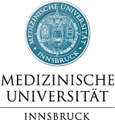TIPP Dienstag, 11.06.2024
40. Böhm-Bawerk Lecture 2024: Globalization, The Rise of right-wing Populism and the End of the Liberal International Order?
17:00 - 18:30 Uhr
HS1, Campus Sowi, Universitätsstraße 15, 6020 Innsbruck
Anmeldung ist erforderlich; Anmeldung beim Veranstalter bis 06.06.24
Eintritt / Kosten: keine
Vortragende/r
Helen V. Milner
B.C. Forbes Professor of Politics and International Affairs, Princeton University
Weitere Informationen
What are the political consequences of economic globalization? Globalization has brought many economic benefits. Its political consequences have often seemed less benign. In particular, globalization may pose a threat to liberal democracy. How has globalization - that is, the increasing flow of goods, services, people, technology, and capital across borders - affected long-standing democratic countries? A long literature has noted that global capitalism and democracy may create stresses for each other (e.g., Marx 1890, Polanyi 1957, Piketty 2014). Capitalism is a dynamic system with large distributive effects that can cause “creative destruction” (Schumpeter 1942) and pose threats to democracy (Polanyi 1957). Rapid changes in people‘s economic situations can shake support for governments and ultimately their faith in democracy. Since the 1990s, scholars have noted the rise of extremist parties, especially right-wing populist ones. If extreme right populist parties promote more authoritarian politics, their rise may signal trouble for liberal democracy. Progressive tax systems, social welfare policies, and restrictions on international economic flows-i.e., protectionism- were used to help democracy accommodate capitalism, as theories of “embedded liberalism‘‘ noted (Ruggie1982). In this time of very open global markets, concern exists that these policies are no longer effective. If so, is globalization promoting political parties that challenge liberal democracy and undermine the liberal international order (LIO)? Much debate exists over what is causing the rise of the far right populist parties. The central question here is what role does globalization play.
Veranstalter
Die Sozial- und Wirtschaftswissenschaftlichen Fakultäten in Kooperation mit dem FSP EPoS


